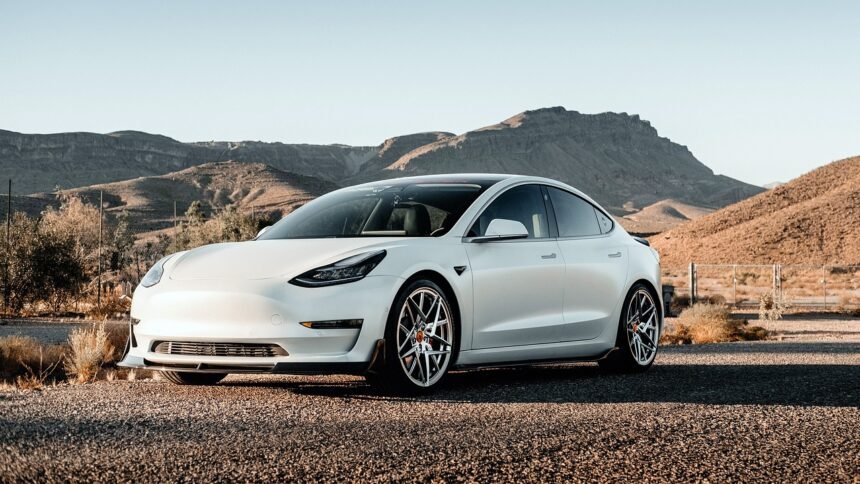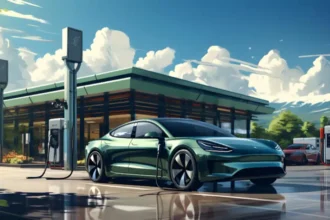Are you considering making the switch to an electric vehicle (EV) but feeling overwhelmed by the sheer number of options? With the growing demand for cleaner and more efficient cars, choosing the right EV for your needs can seem like a daunting task. What range do you need? Should you go for a luxury model or a budget-friendly option? How will you charge it? In this guide, we’ll walk you through everything you need to know to select the perfect EV that fits your lifestyle and driving habits.
Why Switch to an EV?
Before diving into how to choose the right EV for your needs, it’s essential to understand why electric vehicles have become so popular. Here are a few compelling reasons:
- Environmentally Friendly: EVs produce zero tailpipe emissions, helping to reduce your carbon footprint.
- Lower Operating Costs: While the upfront cost can be higher, EVs are cheaper to run and maintain compared to gasoline cars.
- Government Incentives: Many governments offer tax credits and rebates for EV purchases.
- Innovative Technology: EVs are often equipped with the latest technology and advanced safety features.
Now that you know why switching to an EV is a good choice, let’s focus on how to find the perfect model for you.
Factors to Consider When Choosing the Right EV
1. Driving Range
One of the first things to consider is the EV’s driving range, which refers to how far the vehicle can travel on a single charge.
- City Drivers: If you mainly drive in the city, a car with a range of around 100-150 miles should suffice. Smaller EVs like the Nissan Leaf or the Chevrolet Bolt EV fit this need well.
- Long-Distance Drivers: If you frequently take longer trips or have a longer commute, look for an EV with a range of over 250 miles, like the Tesla Model 3 or the Ford Mustang Mach-E.
Your driving habits and whether you’ll be using the vehicle for city commutes or longer road trips should influence your decision.
Pro Tip: Make sure the EV’s range is slightly more than you need on a daily basis to account for weather changes, traffic, and charging station availability.
2. Charging Options
Charging infrastructure is a crucial consideration for EV owners. Ask yourself:
- Where will you charge your EV?
- How long does it take to fully charge the battery?
There are three main types of charging:
- Level 1 Charging (120V): Uses a standard home outlet and is the slowest option, taking 12-20 hours for a full charge.
- Level 2 Charging (240V): Much faster, taking around 4-6 hours for a full charge. Many EV owners install these chargers at home.
- DC Fast Charging: Found at public charging stations, it can provide an 80% charge in as little as 30 minutes.
If you have access to fast public charging or can install a Level 2 charger at home, you’ll have more flexibility in your EV choice.
3. Budget and Incentives
EVs can range from affordable to luxury models, so your budget plays a significant role in the decision-making process. While some EVs like the Nissan Leaf start at around $28,000, others like the Tesla Model S can easily exceed $90,000.
Don’t forget to factor in available tax credits and rebates. In the U.S., federal tax credits of up to $7,500 are still available for certain models. States may also offer additional incentives, making EVs even more affordable.
Here’s a quick table comparing a few popular models and their price ranges:
| EV Model | Price (Before Incentives) | Estimated Range |
|---|---|---|
| Nissan Leaf | $28,000 | 149 miles |
| Tesla Model 3 | $40,000 | 263 miles |
| Chevrolet Bolt EV | $31,000 | 259 miles |
| Ford Mustang Mach-E | $46,000 | 270 miles |
| Tesla Model S | $88,000 | 375 miles |

4. Performance
EV performance is about more than just speed. Electric motors offer instant torque, meaning even budget-friendly models provide smooth and quick acceleration. Here’s what to consider:
- Acceleration: How fast do you need your EV to accelerate? For instance, the Tesla Model 3 can go from 0 to 60 mph in just 3.1 seconds.
- Handling: EVs tend to have a lower center of gravity due to the heavy battery pack, improving their handling and stability on the road.
What Type of EV Is Best for You?
With so many types of EVs on the market, it’s essential to pick one that suits your driving style and needs. Below are the primary categories of EVs:
1. Battery Electric Vehicles (BEVs)
These are fully electric cars that run solely on battery power. They’re ideal if you have easy access to charging stations and plan to stay within the car’s driving range.
- Example: Tesla Model 3, Chevrolet Bolt EV
2. Plug-in Hybrid Electric Vehicles (PHEVs)
PHEVs offer the flexibility of an electric motor with a smaller gasoline engine for backup. This option is great for those who want the benefits of an EV but are concerned about range anxiety.
- Example: Toyota Prius Prime, Ford Escape PHEV
3. Hybrid Electric Vehicles (HEVs)
HEVs aren’t plugged in to charge; they use a combination of a gasoline engine and an electric motor to improve fuel efficiency. However, they aren’t considered “true” EVs since they still rely on fossil fuels.
- Example: Toyota Prius, Honda Accord Hybrid
Additional Features to Look for in an EV
1. Technology and Connectivity
Most EVs come packed with the latest technology, including advanced infotainment systems, autonomous driving capabilities, and smartphone integration. Features like Apple CarPlay, Android Auto, and large touchscreen displays are standard in many models.
2. Safety Features
Look for EVs with advanced safety features such as:
- Autopilot or Adaptive Cruise Control: Allows for semi-autonomous driving.
- Automatic Emergency Braking: Can detect obstacles and prevent collisions.
- Lane Keep Assist: Helps you stay in your lane.
3. Battery Warranty
EV batteries degrade over time, so it’s crucial to choose a model with a solid battery warranty. Most automakers offer warranties ranging from 8 to 10 years or 100,000 miles for the battery.
Frequently Asked Questions (FAQs)
1. How long do electric vehicle batteries last?
Most EV batteries are designed to last at least 8-10 years, with some lasting up to 15 years depending on usage and care.
2. Can I charge my EV in the rain?
Yes, it’s completely safe to charge an EV in the rain. EVs and charging equipment are designed to be weather-resistant.
3. How much does it cost to charge an EV?
The cost depends on local electricity rates, but on average, it costs about $10 to fully charge a typical EV with a 250-mile range.
4. Do EVs require less maintenance?
Yes, EVs generally require less maintenance since they have fewer moving parts. There’s no need for oil changes, and the brake system tends to last longer due to regenerative braking.
5. Can I take an EV on long road trips?
Absolutely. With the growing network of fast chargers and improvements in battery range, EVs are increasingly viable for long-distance travel.
Conclusion
Choosing the right EV for your needs boils down to understanding your driving habits, charging capabilities, and budget. Whether you’re looking for a short-range city car or a luxury model with all the bells and whistles, there’s an EV out there for you. With government incentives, lower running costs, and the environmental benefits, now is the perfect time to make the switch to electric driving. Start your journey toward a greener, more efficient future today!









